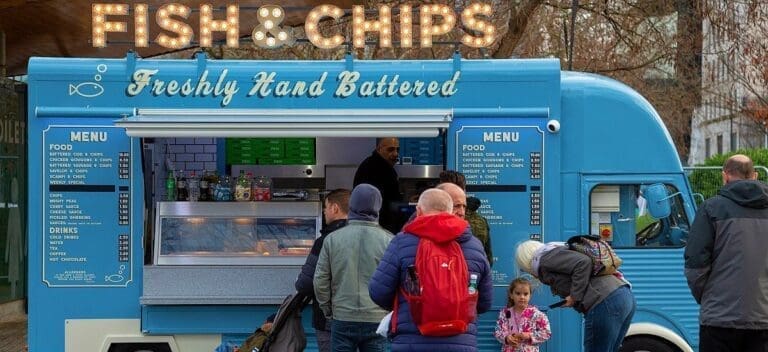As the appetite for trying new foods grows and consumers actively seek out new dining experiences, the traditional lines between eating out in restaurants or tucking into street food are blurring.
 Food trucks are one of the main reasons why.
Food trucks are one of the main reasons why.
Whether they specialise in luxury noodles, artisan pizza or tacos with a twist, growing numbers of street food traders that started off life in food trucks are making the transition to bricks-and-mortar stores.
It all adds up to a more exciting local dining scene, says Ian Hanlon, director at JLL Foodservice Consulting.
“Today’s food trucks offer high-quality ingredients and often champion local produce – a far cry from the greasy burgers of previous years,” he says. “As they’ve become a familiar sight on high streets, in shopping malls and at festivals, they’ve attracted a new generation of food-loving consumers and their success has spurred others to follow suit.”
A modern testbed
Food trucks have fast become a favourite way to revitalise tired local dining scenes and transform non-descript areas into vibrant destinations such as Dockyard Social in Glasgow, Kerb in London or Birmingham’s Digbeth Dining Club.
Much of this is down to creative would-be restauranteurs with big ideas and small budgets who see food trucks as a way to test their dishes without the traditional overheads of a leased restaurant until they’re ready to make the move.
“There’s been some great examples of van operators making their mark on the street or in food halls and becoming so successful that they’ve moved to bricks-and mortar-units,” says Hanlon, pointing to MEATliquor, Rola Wala and Pizza Pilgrims.
“On the flip-side, the emergence of more food halls across the UK means new space is there for those seeking it,” he adds. London is set to welcome a Time Out Market in 2021 to join its growing crowd of food halls with the likes of Baltic Market in Liverpool and Mackie Mayor in Manchester proving popular in the regions.
As appealing as the comfort of covered indoor food halls may be, food truck operators value flexibility.
“The shift to a contained space indoors offers operators a captive audience, while also facing off any concerns over the UK weather,” Hanlon says. “But being able to up sticks and move around the UK is just as important – especially when there is no shortage of potential sites. Just look at the growth of the UK music festival scene in recent years.”
Indeed, being on four wheels has given some food trucks the freedom to travel from London to Leeds for short-term residencies. The Trinity Leeds shopping centre has been offering truck-based concepts one-month positions to five vans on its Trinity Kitchen food floor, despite practical complications around not being at ground level.
“When a shopping centre goes to the extra effort of hoisting horseboxes, you can safely say – no pun intended – that food truck dining has reached new heights,” says Hanlon. He estimates that shopping centre landlords are focused on having around 80 percent permanent food concepts and 20 percent that can be regularly changed.
“It keeps the space fresh, alive and inviting for locals and makes it a destination for visitors,” Hanlon says. “But it also means the days of simply locking in your entire roster of food and beverage tenants for long periods are over. So, food truck operators are well-positioned – and sought-after.”
Keeping the buzz
Yet with many successful brands now scaling up, either trying out permanent retail units or expanding their vehicle fleets, Hanlon points out there is the risk that the very thing an operator has become famous for then becomes distanced from the offer.
“Success is hugely driven by the passion and personality of the operator,” he says, pointing to the cult following truck food gathers online through social media channels. “Scaling up can mean authenticity may get lost somewhat once staff numbers rise.”
More food brands are also keen to build their name in the street food market.
“Competition between truck concepts shows no sign of weakening,” says Hanlon. “It’s a time of greater choice – both of setting and menu.”
Longer-term, however, their future is less secure than traditional restaurants – and more could be done to safeguard both the small traders working behind the scenes and the vibrant food scenes they create.
“They’re providing somewhere to go for the office worker in their lunch hour or out for an after-work social, as well as the weekend diner,” Hanlon says. “Some kind of tax relief on food hall or community spaces could be a wise move to help sustain momentum.
“They’re boosting footfall and fast-becoming the lifeblood of many towns.”





























